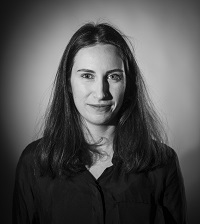Lunch seminar with Andrea Prochazkova
The Czech Constitutional Court as an Agent of Social Change?
In recent years, there has been a notable increase in the use of strategic litigation in both international and national courts. Strategic litigation - defined as the deliberate use of legal action to bring about broader social, political, or legal change - has been employed to address issues such as the climate agenda, abortion and women's rights, social rights, and freedom of expression. While this approach seemed to be predominantly a feature of the Anglo-American legal sphere, it has increasingly found a place in the continental legal systems of Europe.
We already know that constitutional courts act as agents of change within continental legal systems. However, scholars have primarily focused on how courts implement change, paying less attention to how constitutional complaints are carefully selected, who is behind these strategic efforts, and how judicially driven change takes root in society.
This paper focuses on the Constitutional Court of the Czech Republic, a prominent example of constitutional review that emerged in the early 1990s, inspired by Western jurisprudence and practices. Unlike other constitutional courts in the region, it has operated for over thirty years in a stable democratic environment with a relatively developed civil society.
The research aims to answer key questions: How does strategic litigation influence constitutional change in the Czech Republic? Who are the main actors behind these constitutional complaints, and what strategies do they employ to bring about judicially driven change? To address these questions, this paper will employ an in-depth analysis of selected case studies involving constitutional complaints. The study will also examine the implications for the Court's abstract review and the broader impact of these cases on society.
By shifting the focus to the strategies behind case selection and the actors involved, this paper contributes to a deeper understanding of how constitutional change is initiated and institutionalized through the judiciary. Ultimately, it aims to shed light on the collaborative role of strategic litigation and judicial processes in the ongoing evolution of constitutional law within post-communist democracies.
Speaker bio
 Andrea Procházková is a PhD candidate specialising in constitutional law at the Faculty of Law, Charles University in Prague. Her academic work is complemented by her role as a lecturer, where she teaches political science, constitutional law and a specialised skills course focusing on lawyers' interaction with the media. Her doctoral research focuses on elucidating the function of the Constitutional Court of the Czech Republic as an agent of social change. Specifically, she examines the judicial strategies used in reviewing legislative enactments in order to delineate the Court's influence within the socio-political landscape.
Andrea Procházková is a PhD candidate specialising in constitutional law at the Faculty of Law, Charles University in Prague. Her academic work is complemented by her role as a lecturer, where she teaches political science, constitutional law and a specialised skills course focusing on lawyers' interaction with the media. Her doctoral research focuses on elucidating the function of the Constitutional Court of the Czech Republic as an agent of social change. Specifically, she examines the judicial strategies used in reviewing legislative enactments in order to delineate the Court's influence within the socio-political landscape.
Andrea's scholarship has consistently explored the nexus between law and politics, with a particular focus on the operation of constitutional courts in different political contexts. Her publications offer insights into the evolving dynamics between the judiciary and political actors.
In addition to her academic role, Andrea is also an journalist with a focus on reporting on judicial issues and political developments in the Czech Republic.
Meeting ID: 681 0872 1439
Passcode: 153366
